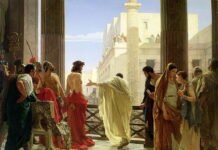In the wake of the 2020 Black Lives Matter demonstrations, the Archbishops of Canterbury and York felt they had to act. They had a golden opportunity to set in train an inclusive, broadly representative, generous, open-minded process to examine whether there are things about the structures of the Church, or the ways they are operated, which impede the Church’s mission due to conscious or unconscious racism and, if there are, to propose effective remedies.
It would be motivated by love of God and neighbour, uninhibited by preconceived theories and categories. It would foster mutual understanding across the whole Church, as a widely-shared endeavour. Any proposals would be based on carefully gathered, objectively evaluated, contemporary empirical evidence. It would, by this, achieve a lasting, generally agreed settlement of this potentially explosive issue and avoid the bitter divisions which can be seen on the other side of the Atlantic.
The Archbishops could have done this. But they blew it.
Hurriedly, they set up an “Anti Racism Taskforce” which, as the Archbishop of York said, was “not intended to be a broad representation of different church contexts”. Its starting point was the Archbishop of Canterbury’s sweeping assertion that the Church is “deeply institutionally racist”.
Hampered by Covid, the taskforce never physically met, had limited specialist expertise, conducted no critical analysis of work done (often many years ago) by the Committee for Minority Ethnic Anglican Concerns, commissioned no contemporary research, delegated topics to small groups of its members or even a single member, never considered the possibility of causes of disparity other than racism, and did not evaluate or conduct cost-benefit analysis of any of its 47 “actions”, which are now treated as Holy Writ.
The work was then taken up by the Archbishops’ Racial Justice Commission (ARJC). Its members were selected in secret, with no open competition, and no published criteria for appointment. It seems to believe that its role includes delivering the Taskforce’s “actions”, despite their manifest deficiencies. The ARJC has just produced its first report. Its institutional mindset is revealed by an otherwise unimportant detail: the adoption of the term “GMH”. This neologism stands for “Global Majority Heritage” and means everyone in the world who is not white. It is an activist invention, spun out of divisive, dehumanising “critical/intersectional” theories, according to which society is crudely understood in terms of the exercise of power and categories of oppressor/oppressed.
Lord Boateng, the chair, writes in the introduction, “The response to an examination of racism and the exposure of injustice is often one of denial and defensiveness or obfuscation and delay. This must not go unchallenged.” It is this variation on the theme of “white fragility” that needs to be challenged. The implication is clear: contest the work of the ARJC and you may be accused of being “in denial” and, by “obfuscation and delay”, complicit in the Church’s systemic racism.
Boateng continues: “There is a need in these circumstances to speak truth unto power.” One may be forgiven a wry smile at this cliché being deployed by an ennobled Privy Councillor, former cabinet minister and High Commissioner to South Africa, who has the entire weight of the Church of England’s establishment behind him. Is it nonetheless, apt?
Read it all in The Critic



